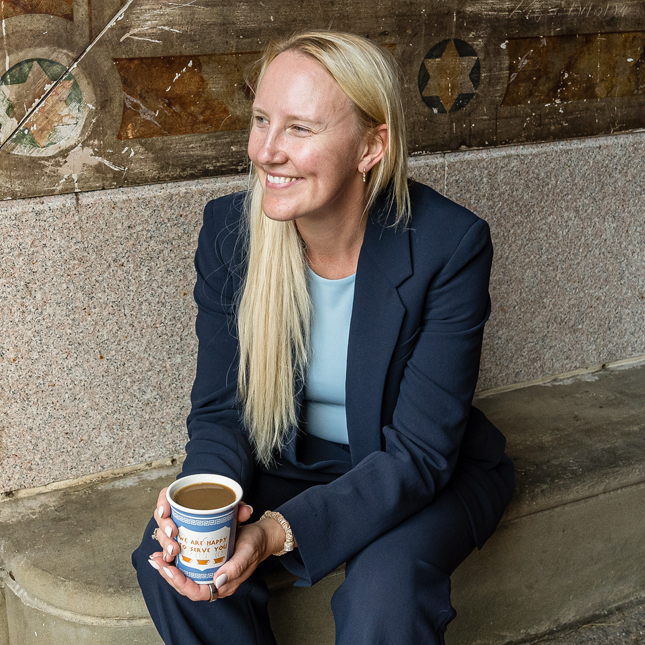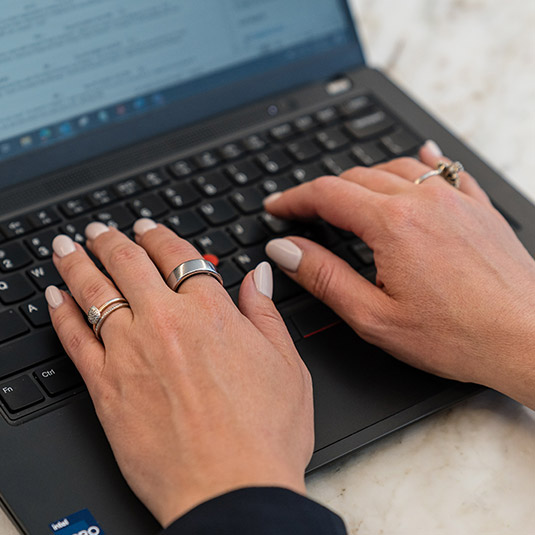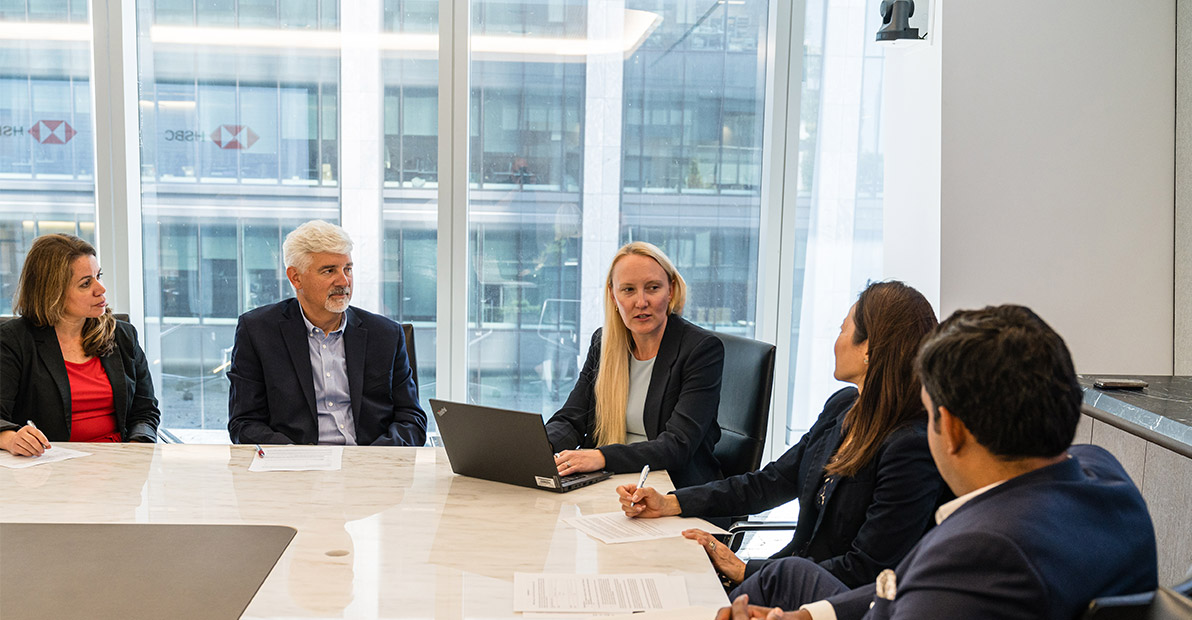
Marissa Adams
Regional Head of Global Trade Solutions, Americas
Joined in 2009
You could say that international trade is in my DNA. I was raised in Canada in an entrepreneurial family. My parents owned and operated a fabric import business and I grew up travelling with them to Europe, where they would buy fabric to sell in North America.
Fast forward several years and I’m now leading HSBC’s Global Trade Solutions team for the Americas. Trade is an exciting, dynamic area to work in. There are always new challenges and opportunities, from navigating the impact of geopolitics to developing innovative solutions for our clients to mitigate risk and support their growth.
International outlook

I am based at HSBC’s US headquarters in New York City but my team is located across the country, as well as in Mexico, Brazil, Chile and Uruguay. We empower companies to achieve their international ambitions, by facilitating the import and export of goods and services, aiding their expansion into new markets and supporting their broader working capital goals.
Our clients range from mid-market businesses right through to the largest multinationals. They operate both here in the Americas and internationally, across all major industries, including tech, consumer retail, health care and the industrials. Our team has the skill and expertise to enable businesses to grow at every stage of their life cycle. It’s exciting to see the parallels between a customer with a relatively modest turnover today and those that are turning over $30-40 billion.
I love getting to know our clients, the history of their business and their ambitions for the future. Understanding our customers is fundamental to our success as a bank and it’s a privilege to support them. Many of these businesses are focused on solving some of the world’s greatest challenges. They are passionate about the impact they make.
Career path
I first joined HSBC in 2009 as a graduate on the bank’s International Manager programme. I’d always had a desire to see the world and was drawn to the prospect of an international career. Thanks to HSBC, I have had the opportunity to work in Europe, Asia and now the Americas. Working with colleagues and clients across the world has supported my evolution as a banker. It even introduced me to my husband, when we were both analysts for HSBC in London.

I haven’t always worked here. In 2014 I left to try my hand at starting a business. Inspired by my family roots, I launched an e-commerce men’s sock company. I played every role in the company, from designing the products, to logistics, accounting and sales. The socks were high quality and although I wound the business down eventually, the socks themselves are still going strong. My husband still wears his!
It was a great experience, like a personal MBA, but I missed the diversity of interactions and the culture of the bank. When you’re running a company, you’re in one sector, with one focus. In banking you get a broader view of the world, of diverse companies and of global economies.
So, I came back to banking – and back to HSBC. My foray into entrepreneurship taught me a lot. I know first-hand how hard it is to start a business and how easy it is to make mistakes. I know the importance of sourcing materials and finding the right suppliers. I know what it means if you miss a deal, or if a payment doesn’t come through on time.
Although my company was a small enterprise, it allowed me to experience the customer perspective and understand the importance of international banks such as HSBC for business owners.
The international trade landscape is changing. Building supply chain resilience is a priority for most businesses with international operations. Against the backdrop of growing climate, geopolitical, and logistical risks, some customers are exploring manufacturing opportunities in new markets closer to home and diversifying their supplier base to mitigate the risk of disruption.
Geopolitical uncertainty is nothing new, but products are becoming increasingly complex. In the past, there might have been a handful of suppliers behind, say, a pair of glasses. Today, a pair of glasses might be made of more than 50 components, sourced from many different countries. The complexity of the supply chain means the company is dependent on multiple players, which opens it up to geopolitical risk. These are the sorts of issues we help our customers to navigate.
There’s great variety in my job and no two weeks are the same. If I’m not with my team at our US headquarters, I’m meeting with clients, visiting a manufacturing site, travelling to Asia for a roadshow or catching up with colleagues in Latin America. When I’m not working, I’m usually with my family. I have a young son and two dogs, and we enjoy getting out into nature as much as we can.





